Blurry Vision: When Is It Serious?
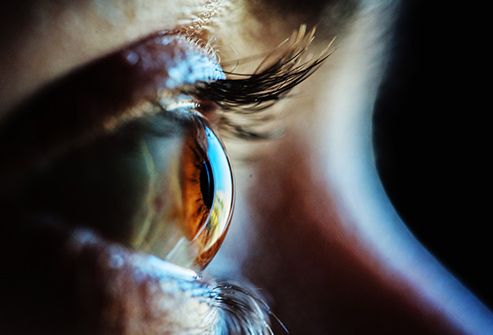
You Need Glasses
When your eyeball is shaped more like an egg than round, or your cornea or your lens isn't curved just so, light can't focus in the right spot. That can lead to seeing clearly only at certain distances (nearsighted and farsighted) and distorted vision (astigmatism). You can often correct these "refractive errors" with eyeglasses, contact lenses, or minor surgery.
Swipe to advance

2
/
14
Your Eyes May Be Tired
Have you been staring at a screen or page or focusing on a task for a long time? People tend to blink less often when they're concentrating like that. And each time you blink, you're spreading tears across the surface of your eye to keep it lubricated, clean, and refreshed. You may need to remind yourself to blink more often, take breaks, and look around to prevent vision fatigue.
Swipe to advance
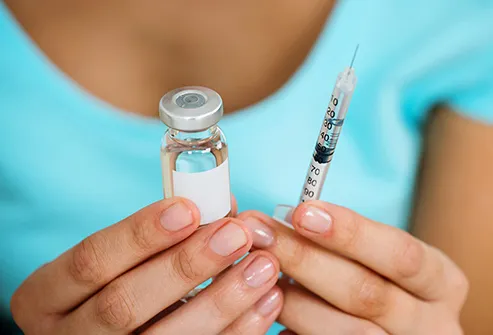
3
/
14
You Have Diabetes
When your blood sugar isn't well-controlled, fluid may seep into the lens of your eye and make it swell. This can happen before you're diagnosed or if you're changing your treatment, like starting insulin. As your glucose level gets back to normal, the lens should, too. People with diabetes are more likely to get retinopathy and other eye problems, which your eye doctor will check for at your yearly exam.
Swipe to advance
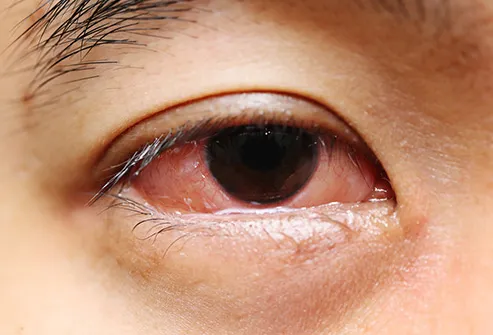
4
/
14
Your Eye Is Inflamed
Eye tissue may swell because it's been bruised or something bad was splashed in it. The herpes virus from a cold sore could move to your eye. Sleeping in your contacts, not cleaning them correctly, or not throwing them away when you should can also lead to infections. Immune system diseases that affect other parts of your body, like psoriasis, IBS, and rheumatoid arthritis, can also cause inflammation in your eye.
Swipe to advance

5
/
14
Your Blood Pressure Is Low
Feeling weak and dizzy, too? Your blood pressure might be too low because you're dehydrated -- maybe from too much activity in the hot sun. Things like some medications, heart problems, poor nutrition, and hormone imbalances could also cause low blood pressure and related blurry vision.
Swipe to advance
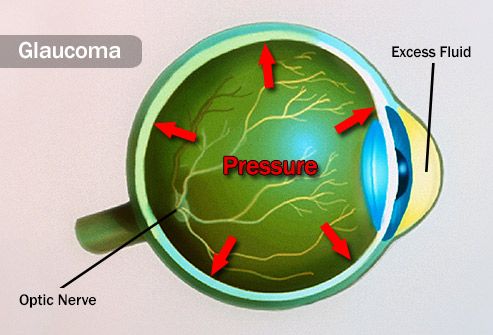
6
/
14
Fluid Is Building Up in Your Eye
That can put pressure on the optic nerve and damage it. If you're also seeing halos around lights, your eyes are very red and hurt a lot, and you feel queasy, you may have acute angle glaucoma. It develops very quickly, and you could lose your vision within a day if it's not treated. Open-angle glaucoma is more common, but it doesn't usually affect your vision at first.
Swipe to advance

7
/
14
A Migraine Is Starting
About 1/4 of people who have migraines get visual auras, usually before the pain and for less than an hour. These range from shimmering zig-zag lines, sparkles, and flashes to blind spots and tunnel vision. It may seem like you're looking through water or cracked glass. (You could also have vision symptoms without or after the headache.) If it happens only in one eye, see your doctor in case it's a serious problem.
Swipe to advance
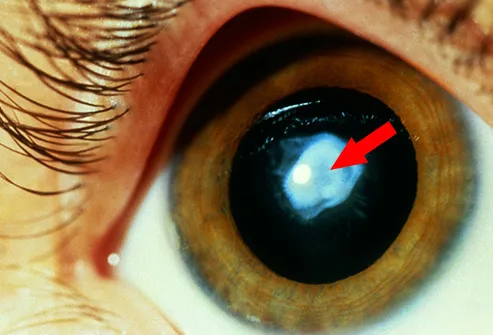
8
/
14
You Have a Cataract
That's a cloudy area in the normally clear lens of the eye. They grow slowly, usually in both eyes, after age 55. But younger people, even kids, can get them, too. Colors may seem faded, it may be harder to see at night, and you may be more sensitive to glare. Special glasses and lens coatings can help you see. Surgery can replace the cloudy lens with a man-made one.
Swipe to advance

9
/
14
You're Getting Older
Starting around 40, you'll notice it's harder to focus on up-close tasks like reading. The clear lens inside your eye isn't as flexible as younger people's. It's a normal part of aging. Your eye doctor can help you with reading glasses, contacts, or surgery.
Swipe to advance
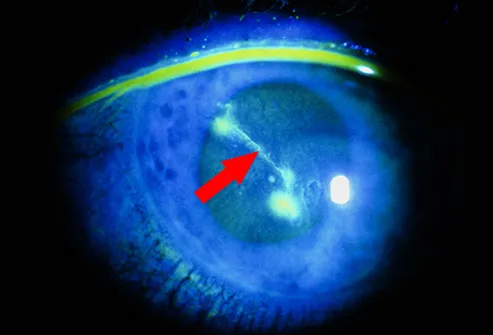
10
/
14
You Scratched Your Cornea
Typically, this feels like you've got a big, rough chunk in your eye. A corneal abrasion might be from an injury, but it's more likely from a bit of dust or sand. Try flushing your eye with clean water or eye wash. You can blink several times to make more tears, but don't rub or touch your eyeball. That could make it worse. See your eye doctor ASAP.
Swipe to advance
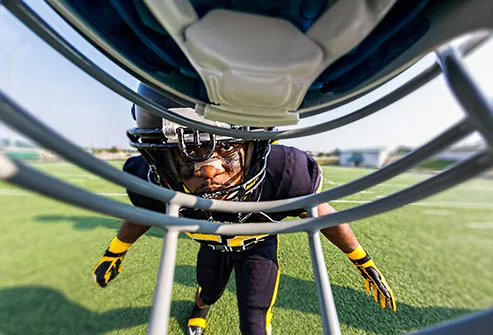
11
/
14
It's Something in Your Brain
A concussion or brain injury could disrupt how information from your eyes gets processed. Depending where and how big it is, a brain tumor may affect your sight. Double vision can be one of many symptoms of brain swelling or of the membrane that surrounds it (encephalitis or meningitis), often because of infection. While it's not a symptom people usually think of, blurry vision can warn of a stroke.
Swipe to advance
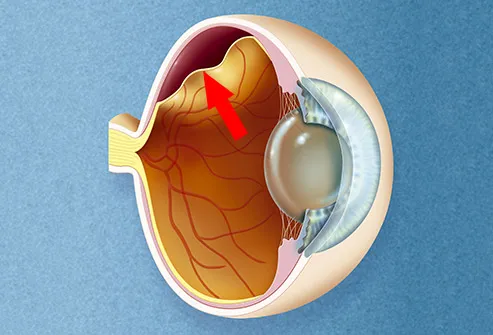
12
/
14
Your Retina Is Damaged
The retina (which includes your macula) is the back part of your eye where light gets focused, like a movie screen. If something happens to that surface, like swelling or tearing, the picture can be distorted or lost. Poor diet, smoking, previous eye injuries or disease, and health issues such as high blood pressure, high cholesterol, and diabetes can raise the odds of problems like macular edema and a detached retina.
Swipe to advance

13
/
14
You May Have Multiple Sclerosis
Signals going from your eye to your brain have a harder time traveling through a swollen or damaged optic nerve. Doctors don't know for sure what causes optic neuritis. But about half of people who have this condition will develop multiple sclerosis within 15 years. Vision trouble is often the first symptom of MS.
Swipe to advance

14
/
14
There's Trouble With Your Pregnancy
Blurry vision along with headaches, shortness of breath, or feeling like throwing up may signal a serious complication called preeclampsia. It happens when blood vessels in your placenta are too narrow and don't work right. (Higher blood pressure after 20 weeks is usually the first sign.) See your doctor right away. Without treatment, it can cause life-threatening problems. Medications and rest until you deliver can help.
Swipe to advance
- Get link
- X
- Other Apps